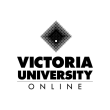
Match your talents and interests with the health career that’s right for you with our career quiz.
Want to discover your ideal healthcare career? Whether you already work in healthcare and want to change direction or you’re pondering a move into the industry, there’s a lot to consider. Discover how your preferences align with six healthcare careers with our career quiz.
Healthcare career quiz
1. What type of work environment do you prefer?
- Fast-paced hospitals and clinics
- One-on-one sessions with clients
- A quiet space to conduct in-depth research
- Community-based outreach and education
- Leadership and organisational roles
- Helping individuals with mental health challenges
2. How do you handle stressful situations?
- Stay calm under pressure
- Provide emotional support to others
- Analyse and problem-solve
- Adapt to changing circumstances
- Take charge and lead
- Offer empathetic listening
3. Which of the following motivates you most?
- Providing immediate care and comfort
- Assisting individuals in self-development
- Studying the human mind and behaviour
- Making a broad societal impact
- Managing and improving healthcare systems
- Developing services to support emotional wellbeing
4. What is your preferred work schedule?
- I don’t mind shift work and irregular hours
- I want to set my own hours and work for myself
- I’m happy to work to a flexible schedule
- I prefer regular hours and am happy to work alone
- I like working regular hours leading teams
- I like variety but don’t want to work shift work
5. Do you find satisfaction in guiding other professionals?
- No. I’d rather work directly with patients
- No. I want to help clients work through challenges
- Yes and no. I enjoy studying human behaviour and helping a range of people
- No. I want to make a difference in the lives of large populations of people
- Yes. I love the idea of guiding healthcare professionals
- No. I want to support those living with mental health concerns
6. A colleague is upset. How would you respond?
- Stay by their side, offering comfort and reassurance
- Offer to listen and encourage them to share their feelings
- Analyse the situation and offer guidance on managing emotions
- Initiate a discussion about workplace stressors and propose changes to reduce stress
- Coordinate with HR to ensure they receive the necessary support
- Suggest seeking professional help and provide them with information
7. What leaves you feeling most fulfilled at the end of a long workday?
- Knowing I’ve provided care, comfort and assistance
- Helping clients find solutions to their challenges
- Understanding complex human emotions and contributing to better understanding
- Seeing the results of my efforts in improving communities
- Successfully managing and enhancing the operations of a team
- Supporting individuals with their challenges and witnessing their improvements
Careers in healthcare quiz results
Mostly A’s: Nurse
Did you answer mostly A’s in our healthcare career quiz? If you find direct patient care appealing and often remain calm under pressure, you could explore a career in nursing.
Nurses work in hospitals, GP practices, outpatient facilities and homes providing medical care. These healthcare professionals work as part of a team that may include other nurses, doctors and allied health practitioners. There are many nursing roles, including:
- enrolled nurses, who work under the supervision of registered nurses
- registered nurses, who provide primary healthcare in a range of settings
- practice nurses, who work in GP practices
- specialist nurses, such as theatre nurses and mental health nurses
According to Seek, enrolled nurses earn about $68,000 a year, registered nurses about $88,000 a year and more experienced nurses, such as clinical nurses, about $105,000 a year.
There is much scope for nurses to further their careers by undertaking postgraduate study to become more senior nurses, such as nurse managers, nurse educators and nurse practitioners.
The courses below are listed by qualification level, from lowest to highest.






Mostly B’s: Counsellor
Did you answer mostly B’s? If you are drawn to working one-on-one and helping individuals overcome their challenges, counselling could be a rewarding career for you.
Counsellors use a variety of techniques, including talk therapy, to help people facing challenges and support their emotional wellbeing.
These professionals may choose to specialise in areas such as relationships, family and children, crisis and trauma, drug and alcohol, or grief and loss. Counsellors generally work one-on-one with clients but may facilitate groups and collaborate with other healthcare providers.
A counselling career allows you to make positive changes in the lives of clients, and many counsellors enjoy the flexibility to set their own hours and tailor their work approach to suit their professional style and client needs.
Counsellors earn between $90,000 and $105,000 a year.
The courses below are listed by qualification level, from lowest to highest.






Mostly C’s: Psychologist
Did you answer mostly C’s? If you’re interested in studying the human mind, a role as a psychologist might be a rewarding career path to consider.
Employing scientific methods, psychologists study human behaviour and the factors that shape it. They work with clients using a variety of therapies and interventions to help them effectively manage their challenges. Psychologists diagnose disorders, develop treatment plans, administer tests and conduct interviews.
A typical psychologist’s salary in Australia is $103,000 a year.
There are also specialist psychologists, including:
- forensic psychologists, who assist people in the justice system
- sports psychologists, who work with athletes to help enhance performance and manage anxiety
- educational psychologists, who predominantly focus on treating young people
- organisational psychologists, who work with corporations to assist with recruitment and professional development
The courses below are listed by qualification level, from lowest to highest.






Mostly D’s: Public health worker
Did you answer mostly D’s? If you’re interested in addressing broader health issues and making a difference to large populations, consider a career in public health.
Unlike most careers in healthcare, public healthcare professionals don’t provide direct patient care but focus on improving the lives of entire populations. They work in a variety of areas, including sexual health, Indigenous health, education, exercise and nutrition, and vaccination and immunisation.
Public health is a broad and varied area of practice, and public health jobs include researchers and research assistants, epidemiologists, academics, health promotion officers and policy advisors.
Because of the diversity of professions, public healthcare professionals can gain work in a variety of settings and work individually or in teams with other health and policy professionals.
Those working in the public health space can earn between approximately $90,000 and $160,000 a year.
The courses below are listed by qualification level, from lowest to highest.






Mostly E’s: Health leader or manager
Did you answer mostly E’s? If you find the idea of leading and overseeing the smooth running of health facilities, a health leader or manager could be a suitable career path for you.
Health managers and leaders work in a range of settings. Leaders in healthcare are needed to manage hospital nursing units, community health services, allied health practices, Indigenous health services, aged-care facilities and other clinical settings.
Health leadership typically focuses on setting the strategy, inspiring teams and driving organisational change. Health management concentrates on the day-to-day operational aspects and implementing strategies.
Both health leaders and managers lead complex and multidisciplinary teams and engage with a range of stakeholders. They often manage budgets, abide by legislative requirements and apply their research skills to solve complex problems.
Healthcare leaders and managers typically earn between $90,000 to $130,000 a year.
The courses below are listed by qualification level, from lowest to highest.






Mostly F’s: Mental health worker
Did you answer mostly F’s? If you are drawn to helping individuals overcome their challenges in practical ways, you could make a great mental health worker.
Mental health workers engage with a variety of individuals, families and clinicians in a range of community and mental health services.
As a mental health worker, you might draw on your nursing or social work background to evaluate client needs, deliver counselling, refer them to services, and monitor their progress. Mental health workers also play a role in developing mental health services.
Mental health workers earn between $70,000 and $120,000 a year depending on their responsibilities, experience and qualifications.
The courses below are listed by qualification level, from lowest to highest.






The importance of knowing what healthcare job is right for you
Recruitment expert Lauren Karan is the CEO and Founder of Karan & Co. She says when considering your career, it’s important to understand your skills, characteristics, ambitions and what makes you feel good at work.
“Gallup has done industry-leading research that tells us employees are six times more likely to be engaged in their job and report increased wellbeing when they can use their strengths at work,” Lauren says. She adds that a strength isn’t always something you’re good at. “A strength is something we enjoy and where we feel in a state of flow when we do it.
“How many of those activities do you do in your current role? Document it over a week, and build an idea of what you enjoy. You’ll gain insights into a career you’ll love.”
Take a step towards your new healthcare career
So, what did you get in our career quiz? Are you ready to move into public health, or perhaps it’s time to study counselling? Maybe our healthcare job quiz reveals a health leadership career is in your future. Whatever the results, we’re here to get you there.
At GlobalHealth Education, we help professionals propel their healthcare careers forward. Explore the nursing, counselling, psychology, public health, mental health and leadership courses available through GlobalHealth Education’s university partners.










